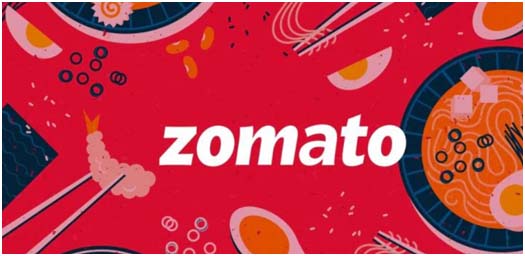No AI images welcomed!
Zomato, one of India’s largest food delivery platforms, has taken a pioneering step by becoming the first digital marketplace to address a growing concern—the use of artificial intelligence (AI)-generated images in restaurant menus and promotional materials. In a world where AI-generated visuals are becoming more common, it can be hard for users to distinguish between real food images and those created by machines. To maintain authenticity and trust, Zomato has decided to ban the use of AI-generated images in the menus and promotions featured on its platform.
This move is aimed at ensuring customers get a realistic expectation of what they’re ordering. When people see pictures of dishes, they often base their decisions on how the food looks. Using overly enhanced or AI-generated images could lead to dissatisfaction if the real dish doesn’t live up to expectations.
By prohibiting the use of AI-generated content, Zomato is setting a standard for transparency, helping customers make more informed choices, and promoting a more genuine connection between restaurants and their patrons. This initiative also pushes the food industry to focus on showcasing real products, improving customer trust, and enhancing the overall dining experience.
What else do we know about this policy?
Zomato has a massive network of 276,000 restaurant partners, but only about 10% of them currently use artificial intelligence (AI) in some way. Interestingly, of those AI-using restaurants, only 2% rely solely on AI-generated photos for their listings. While AI offers many benefits, Zomato sees this trend as a potential threat to authenticity in the restaurant industry.
Ranjan, a spokesperson for Zomato, shared that they began noticing the issue as AI-generated photos became more common. Even though it’s not yet a widespread problem, Zomato believes it’s crucial to address the situation before it escalates. The company is committed to maintaining authenticity and ensuring that what users see is what they actually get when visiting a restaurant.
To tackle this challenge, Zomato has developed AI technology that can distinguish between real photos and AI-generated images with an impressive 90% accuracy. This innovation will help maintain trust and authenticity on the platform, ensuring that users get a genuine representation of the food they’re ordering. Zomato’s proactive approach shows their dedication to keeping the dining experience authentic, even as AI continues to grow.
Implementing the change!
Zomato is helping restaurants transition away from using AI-generated images by offering affordable professional photoshoots through its network partners. The prices for these shoots range from INR 4,000 to INR 5,000, depending on how much of the restaurant’s menu needs to be photographed. For instance, covering 70% of a small restaurant’s menu with professional photos usually costs between INR 7,000 and INR 15,000, making Zomato’s service quite cost-effective.
Ranjan, a Zomato representative, pointed out that although Zomato is taking a strong stand against using AI for images, artificial intelligence is still playing a critical role in other areas like food categorization and nutrition labeling. These features are important for both food delivery and the fast-growing quick commerce sector.
By offering this photography service, Zomato aims to help restaurants maintain the authenticity of their food presentation while also ensuring that the photos represent the actual dishes served. This initiative shows how Zomato is balancing technology’s advantages, like AI, with the need for real, appealing visuals that create trust and transparency between restaurants and customers. It’s a win-win for both the platform and its restaurant partners, as well as the diners who can make more informed choices.
How is this a good marketing strategy?

Considering Swiggy took an opposite stand in this matter, everyone might think how is this a good marketing strategy?
Well,this step positions Zomato as a company that values authenticity, which is crucial in the food industry, where visual representation plays a major role in customer decision-making.
1. Enhances Customer Trust:
By banning AI-generated images, Zomato ensures that the food photos displayed on its platform accurately represent what customers will receive. When customers see real, professional photos instead of artificially enhanced or unrealistic images, they are more likely to trust the restaurant and the platform. This leads to increased customer satisfaction, repeat orders, and positive word-of-mouth.
2. Differentiates Zomato from Competitors:
In a market where digital platforms often compete on technology and convenience, Zomato’s emphasis on real imagery sets it apart from competitors. While AI can enhance efficiency, customers may feel deceived if what they order doesn’t match what they saw online. By focusing on authentic visuals, Zomato is providing an experience that feels more personal and trustworthy, which can be a unique selling point.
3. Supporting Restaurant Partners:
Zomato is not just banning AI images but also offering an affordable alternative. By providing professional photoshoots at reasonable prices (INR 4,000 to INR 5,000), the platform is supporting small and mid-sized restaurants in maintaining a high standard of imagery without a large financial burden. This approach strengthens the partnership between Zomato and restaurants, showing that the platform is invested in their success.
4. Long-term Vision:
In the long run, this strategy aligns with Zomato’s broader goal of maintaining quality and transparency. With food being such a sensory-driven experience, ensuring real photos can create a more consistent and reliable user experience, leading to higher customer loyalty and better brand reputation. This bold move could become a key differentiator in Zomato’s marketing strategy.
Conclusion
In conclusion, Zomato’s decision to ban AI-generated images from restaurant listings is a smart marketing strategy that enhances trust, sets the platform apart from competitors, and supports restaurant partners with affordable alternatives. By prioritizing authenticity and offering professional photoshoots, Zomato ensures that customers receive a genuine experience that aligns with their expectations. This move not only strengthens the company’s relationship with users but also builds long-term credibility in the food delivery market. In a world where AI is becoming more common, Zomato’s emphasis on real, high-quality imagery helps preserve the integrity of its service.